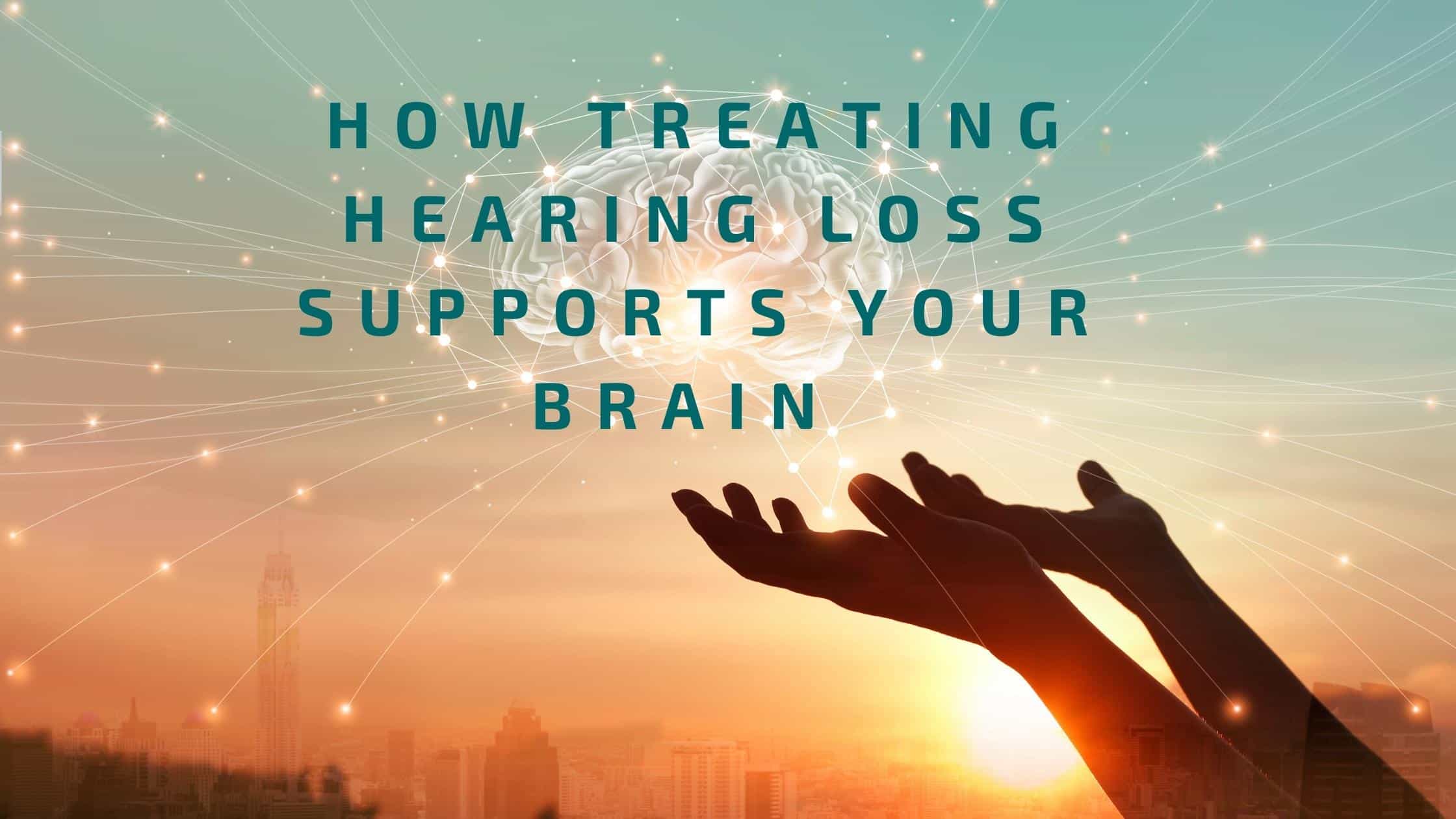
Did you know that healthy hearing is deeply connected to cognitive wellness? It is one of many ways that your hearing is connected to your overall health. The connection between hearing health and cognitive health is also an important consideration when considering when to treat hearing loss. Early treatment is key to minimizing the overall health impact hearing loss has on your life and wellbeing.
Cognitive Stress
Untreated hearing loss doesn’t just affect your hearing – it actually causes stress throughout your body and mind. At the core, this is caused by the way in which the brain prioritizes our hearing. Our brain is responsible for receiving and interpreting sound signals incoming from the ears. When hearing loss is present, those incoming sound signals arrive in the brain incomplete. The brain is then responsible for parsing meaning, filling in blank spots in the information from context clues and guessing. Comprehending sound thus becomes less accurate and requires more time and energy. Think of it like trying to fill in a crossword puzzle you only have half the clues for – it will take far longer to complete and be much more prone to errors.
Unfortunately, this extended process affects the entire performance of our mind. In order to try to interpret incoming sounds quickly, the brain pulls cognitive energy away from other mental tasks, meaning that hearing loss strains our cognitive resources. Attention is pulled from every part of our mental functioning, including critical motor skills like balance and coordination -which can result in serious falling accidents. Cognitive strain caused by hearing loss can be physically tiring and drain our ability to perform other sorts of cognitive problem solving.
Dementia and Hearing Loss
More disturbing still, cognitive stress caused by untreated hearing loss is linked to an increased risk of developing dementia, a severe cognitive decline. Statistics also indicate that the greater the hearing strain (as evidenced by greater degrees of untreated hearing loss), the higher the risk of dementia. Mild to moderate unaddressed hearing loss doubles a person’s risk of developing dementia as they age while moderate to severe hearing loss increases risk three-fold. When severe or profound hearing loss is left untreated it leaves a person vulnerable to a whopping 500% increase in risk of dementia.
While these statistics are scary, research has also shown that treating hearing loss can help reduce these risks. Hearing aids, the most common treatment for hearing loss, help increase comprehension and cognitive performance levels. Hearing aid use has even been shown to increase cognitive performance in hearing-challenged adults living with dementia, lessening their cognitive confusion.
Auditory Deprivation
As we saw above, hearing loss changes the regular patterns of the brain. While cognitive stress results from the brain requiring extra resources to hear, this often happens concurrently with an atrophy of our natural hearing patterns. This occurs while the mind races to keep pace with incoming sound. The pathways and patterns we’ve established since birth no longer function properly for hearing and begin to be ignored. The longer hearing loss is left untreated, the further into disuse these original hearing patterns fall. The brain will even begin to write over established pathways in an effort to hear better.
A classic instance of “use it or lose it”, when our natural hearing patterns aren’t exercised, they begin to disappear. This is called “auditory deprivation”- a lack of activation erodes the way we naturally hear- and it can make it difficult to adjust to the re-introduction of sound, such as when hearing aids are used. Auditory deprivation is why, for many people, using hearing aids requires an adjustment period as the brain becomes reacquainted with sounds it is no longer accustomed to processing.
Fortunately, auditory deprivation can be avoided when hearing loss is treated early. Hearing aids can help at any stage of hearing loss, but early detection and treatment mean that your hearing range is restored before your brain fundamentally changes the way it performs. People who treat their hearing loss early report an easier and more natural sounding transition to hearing aid use.
Your Hearing Is Important
Your hearing impacts the entire performance of your brain and it is important to recognize and treat hearing challenges when they occur. If you’ve noticed changes to the way you hear, it is time to set up your next hearing exam – the first step to better hearing health.
